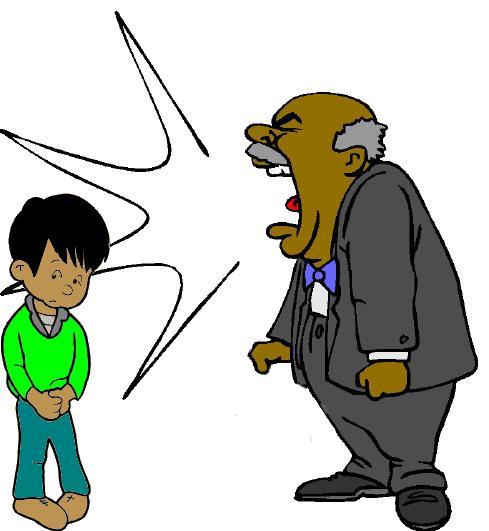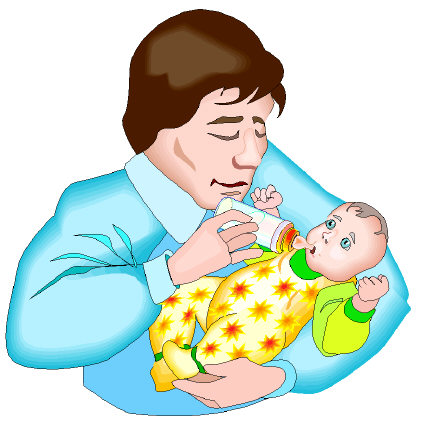To link to this article from your blog or webpage, copy and paste the url below into your blog or homepage.
Parenting From the Inside Out
a book by Daniel J. Siegal and Mary Hartzell
(our site's book review)
Siegal’s insightful book is truly “IN-sight-full.” It asks parents to look inside themselves, learn to understand and accept their pasts, and thereby avoid laying their past baggage on their kids. Otherwise their past emotional pains and the patterns associated with them will manifest as tainted childrearing. He puts it like this:
“If you had a difficult childhood but have come to make sense of those experiences, you are not bound to re-create the same negative interactions with your own children. Without such self-understanding, however, science has shown that history will likely repeat itself, as negative patterns of family interactions are passed down through the generations.”

Another term for negative childhood experiences besides past baggage is old tapes
This is a wonderful piece of parenting guidance. The problem, of course, is that the people who need to do this most are the least likely people to encounter Siegal’s wisdom and advice, and those likely to read and heed the book’s advice are the most likely people to already realize the wisdom of such advise. He may simply be preaching to the choir.
Siegal tells us that research has shown clearly that people with lots of negative childhood experiences can make sense of their lives and have healthy relationships. So the whole “insight about our past” thing isn't just a theoretical nicety. It works.
The author says that the book explores “new insights into parenting by examining such processes as how we remember, perceive, feel, communicate, attach, make sense, disconnect and reconnect, and reflect with our children on the nature of their internal experiences.”

Responsive flexibility is when you feel like scolding a kid who broke a vase, but instead choose to start up a problem-solving dialog
He says that responsive flexibility is a key stance for parents to take in childrearing. This is when a person stays aware of their emotions and sees this array of feelings as a lot of choice opportunities. A simple example is a kid breaks your favorite vase and you feel (a) like spanking him (like your father would have done to you, and often did);(b) like scolding him (like your father would have done to you, and often did); (c) like laying a huge guilt trip on him (like your father would have done to you, and often did—lowering your self-esteem); (d) like starting up a problem-solving dialog.
If you truly CHOOSE the feeling to act upon, you are proactive, not reactive. Proactive parenting of this type is conscious parenting. Consciousness is the willingness to stop and choose a response to make as opposed to having your feelings choose it for you. When you choose, you are running how you act, and you are defining who you are by your choice, but when you do not choose, the strongest feeling will be what gets acted upon, and you are being run by your feelings, you are being defined by your actions as being "whatever your past turned you into—whatever your parents influenced you to be." This is the normal, deterministic way that people act. A more aware person, on the other hand, is existentially choosing to BE—in the Maslow sense of the word (see Toward a Psychology of Being). The alternative is to have your past hang-ups run you and this is a NEED state, not a BEING state. In this need state you need to cease your upset feeling which is making you angry and sad.
The most prominent of your feelings is anger so let us say that you act upon it. YOUR need is to stop these ugly feelings. Acting on your most prominent feeling, anger, is ignoring the child’s need for an understanding, compassionate parent who will problem-solve with the child about his mishap. So you become a mechanical robot who simply reacts mindlessly to your emotions and spank. You're being run by your past. This is normal and demonstrates why spanking and punitive parenting is so popular. It’s easy. An ape could—and would—do it!

An ape reacts mindlessly to emotions without thinking—most people do, too
You cannot erase your past, but you can become more self-aware and choose how to respond rather than having your past (hang-ups and patterns and pain) run you, mechanically. The reacting, spanking scenario above is what the absence of consciousness looks and feels like, and it’s all about NEED (yours, NOT your child’s). The parent—who chooses to BE an understanding, compassionate parent who will concentrate on the child’s NEED for you to problem-solve with the child about his mishap—is a conscious person.
It isn't as though he doesn’t feel his old patterns and the negative emotions that try to get him to lash out physically and verbally. He DOES feel anger and vengeful and sadness and disappointment and maybe even fear that he’ll lose his temper and club the kid hard. But he utilizes responsive flexibility by choosing to run, rather than being run by, the situation. He does this by being a chooser, not a loser, reflexive, not reactive. One cannot prevent emotions from occurring in such stressful situations, but one can choose not to be run by them. It may not be easy but whoever said parenting was easy? It’s much easier to be a reactor than a “proactor.” You might say the parent who chooses to problem-solve rather than hit is sublimating his unpleasant emotions into the higher-level activity of nurturing his kid.
The most comfortable state to be in is the one where you do what you feel like and even think the ridiculous thought that you're simply choosing to “be who you are” and being “honest with yourself” about your feelings, thoughts, and actions. The difficulty with this thinking is that (a) you are not BEING, but needing and then filling that need, regardless of how it affects others; this isn’t honesty. It’s determinism and fatalism. Very little separates you from lower animals if you choose to act according to what your feelings dictate. Humans are quite capable of so much more, and we only get one shot at life, so it’s rather pathetic if we blow our chance at being truly human by simply having our past pain, hang-ups, and patterns run us like we're trained monkeys or programmed robots!

Let's avoid having our past pain, hang-ups, and patterns run us like we're programmed robots
As the author notes, this responsive flexibility stance is hard when we’re already stressed by being tired, hungry, frustrated, disappointed, or angered. At such times we are at high risk of overreacting and causing distress to our children. If we cannot feel the presence of mind within ourselves that will let us have an appropriate parenting response, we should stay away from the child until we get our act together. We might even say “I'm too angry to talk with you at the moment. Let me go settle down and then come back and we’ll talk—okay, son?” This shows you're human and have acknowledged weaknesses—but that you care too much for the kid to be run by them. I.e., do it right, or don’t do it. Parents like you care enough to force yourself to respond appropriately or at least to postpone your response for later. This is part of good parenting.
Siegal tells us that if we are not accepting of a feeling in ourselves, we will reject it in our children as well. The way to cure this is the opposite of “repressing such feelings because they're getting in the way.” Instead, it’s critical that we look inside ourselves, learn to understand and accept our pasts. The worse the past, the more painful this will be. But stay with it: recall and write about bad memories—as is advised in Self Parenting. Find a way to understand them. Feel the old feelings—as is advised in Revolution From Within. The author gives us ways to learn to understand our pasts and cease being run by our old “stuff.” It’s up to us to heed this advice. Self-talk helps as well.

Learn to understand and accept your past—recall and write about bad memories so they don't run you
He talks about avoiding “premature autonomous functioning” (automatic behavior from programmed patterns) making the implicit (non-conscious) explicit (conscious) by use of inside-out exercises. These involve writing about emotions when your buttons gets pushed, reflecting on the unconscious sources of your reactions to your kid, thinking about button pushers that prevent you from relating flexibly with your kid, and asking yourself all kinds of uncomfortable questions about these matters, etc.
Siegal says it is never too late to begin creating positive changes in a kid’s life—especially our relationship to the kid.

Babies always push our buttons, but if you care about the baby's welfare, you'll respond consciously and flexibility, not reactively
He relates that research has shown that it is possible to achieve growth from less secure attachment to more secure attachment, so your relationships deepen and furnish more security and better connectedness. (An MC [microcommunity] would have this nurturing effect on its members, for example. See Why Register for an MC?.)

Registering for MC search and match
Moving toward security provides an improved life for you and your kids. The best way to improve attachment security is to start with yourself—beginning with better self—understanding. In summary, it’s possible to get over bad childhoods and experience growth and security, as long as your environment and relationships support this.
This book is a wonderful piece of parenting guidance. Highly recommended!





